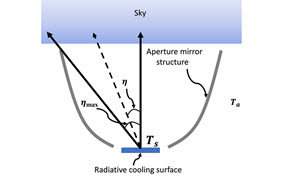Translational Research Awards
New optical technologies win awards at SPIE Translational Research.
Four new optical technologies with high potential to impact health care have each won $500 awards at this year’s SPIE Translational Research, part of Photonics West.
The best papers were selected from nearly 270 submissions at the Translational Research virtual symposium for their focus on definitive outcomes for key clinical issues and unmet medical needs. The awards were sponsored by Beckman Laser Institute & Medical Clinic (USA) and Harvard Medical School (USA).
The winning entries presented a smart bandage for wound monitoring, a fiber-optic setup to reduce the risks of spinal surgery, a new laser-based method to deliver drugs into the back of the eye, and a lens-free microscope for digital pathology.
The smart bandage developed by SPIE member Zongxi Li and her colleagues at Massachusetts General Hospital (USA) is a transparent dressing that uses phosphorescence stimulated by blue light to measure oxygen levels in the tissue of wounds such as diabetic foot ulcers. An invasive polarographic method that requires a painful needle insertion is currently used.
Li said that the bandage, tested on rats, could effectively “light up oxygen” with a simple color change for easy wound monitoring and also predict how likely ulcers were to appear.
A new portable fiber-optic probe to monitor spinal cord ischemia, developed by SPIE member Angela Kogler from Stony Brook University (USA) and a team at University of Pennsylvania (USA) led by Arjun Yodh, has the potential to reduce the incidence of spinal injuries caused when nearby tumors are removed surgically. Blood flow and oxygenation monitoring during spinal surgery cannot distinguish between ischemia caused by injury and that from surgical clamps reducing blood flow under current methods.
The new technology uses differential spectroscopy techniques to measure deoxyhemoglobin levels and has shown accurate, fast, and sensitive results during tests on sheep.
The two other Translational Research winners were Ygal Rotensterich from Tel Aviv University and Sheba Medical Center (Israel), with a new laser-based method to deliver stem cells into the retina to treat sight-threatening retinal diseases, and Yibo Zhang from Aydogan Ozcan’s University of California, Los Angeles (USA) research group, with a low-cost, lens-free microscope showing promise for digital pathology.
Symposium chairs for SPIE Translational Research were SPIE Fellow Bruce Tromberg from University of California, Irvine and Gabriela Apiou from the Wellman Center for Photomedicine at Massachusetts General Hospital. A lunch forum to discuss the translational research presented at Photonics West was sponsored by OCT News.
Do you have a question or comment about articles in our “Photonics for a Better World” series?
Do you have a story to contribute about how optics and photonics technologies benefit humanity? Write to us at spieprofessional@spie.org.
Read more articles and blog posts celebrating the many ways that optics and photonics are applied in creating a better world at PhotonicsForaBetterWorld.org.
- Have a question or comment about this article? Write to us at spieprofessional@spie.org.
- To receive a print copy of SPIE Professional, the SPIE member magazine, become an SPIE member.



